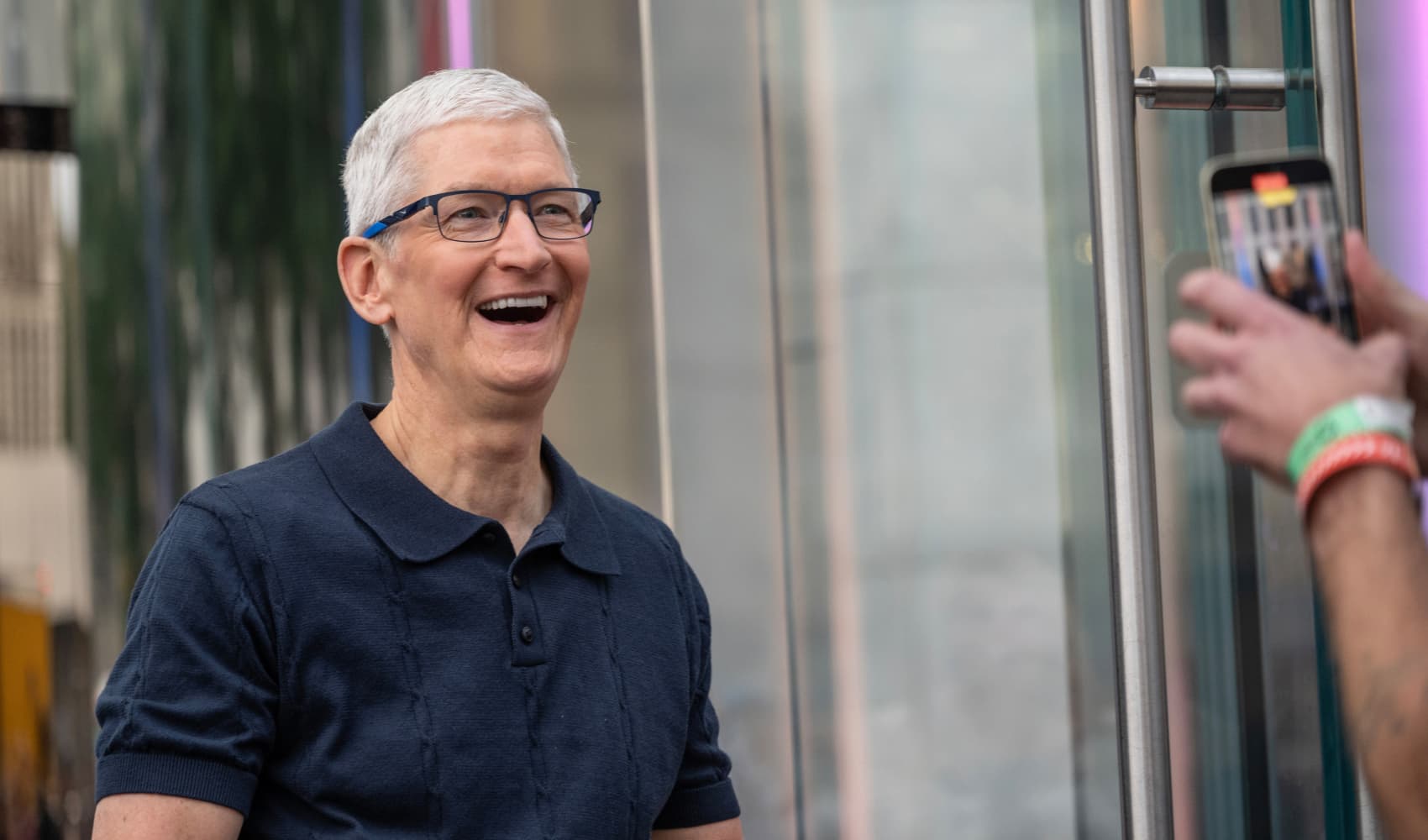Amazon CEO: 1-Word Question for Career Success!
Unlocking Success: The 1-Word Question Amazon CEO Swears By
The Power of 'Why': Amazon's Secret Weapon
Ever wonder what separates the truly successful from the rest? Amazon CEO Andy Jassy believes he's found a significant piece of the puzzle, and it boils down to one simple word: "Why?" Yes, you read that right. Just one little word can, according to Jassy, make "the biggest difference" in your career. Let's dive into how this seemingly simple question can unlock innovation, drive growth, and propel you towards your goals, Amazon-style.
Jassy's Childhood Curiosity: The Origins of "Why?"
From a young age, Andy Jassy was a relentless questioner. He bombarded his family and friends with "Why?" questions, trying to understand the world around him. "Perhaps to an annoying extent," he admitted in his annual letter to shareholders. But this insatiable curiosity, this unwavering need to understand the underlying reasons behind things, became a cornerstone of his success. Think of it as the toddler phase that never really ended - but in the best possible way!
"Why?" at Amazon: Fueling Innovation and Problem-Solving
Fast forward to Jassy's tenure at Amazon, and the importance of "Why?" only amplified. He observed that the employees and teams who consistently ask "Why?" and relentlessly seek deeper understanding were the ones who excelled at breaking down complex problems and creating groundbreaking products. It's not enough to just accept things as they are; you need to question assumptions, challenge the status quo, and dig deeper to uncover the true drivers of success (or failure).
The Impact of "Why?": Learning and Growth
According to Jassy, the ability to learn is the key differentiator between successful companies and individuals. "In the nearly 28 years I've been at Amazon, the biggest difference in the relative growth of companies and individuals has been their aptitude to learn," he wrote. And what fuels that aptitude? The relentless pursuit of "Why?"
Introducing YQ: Your "Why?" Quotient
Jassy even coined a term for this critical skill: "YQ," or your "Why?" Quotient. It's your innate instinct to constantly ask "Why?" and seek continuous improvement. People with a high YQ are never satisfied with the status quo; they're always curious about how they can get better, how things can be improved, and how new opportunities can be unlocked.
Beyond the Surface: Digging Deeper Than "What" and "How"
We often focus on "What" and "How" when approaching problems. What needs to be done? How do we do it? But these questions only address the surface level. Asking "Why?" allows us to understand the root cause, the underlying motivations, and the potential consequences. It helps us to think critically, anticipate challenges, and develop more effective solutions.
"Why?" in Action: Examples from Amazon
Think about Amazon's history of innovation. Why did they start selling books online? Because they saw an opportunity to provide a wider selection and a more convenient shopping experience. Why did they launch Amazon Prime? Because they wanted to increase customer loyalty and drive repeat purchases. Why did they develop Amazon Web Services (AWS)? Because they recognized the growing need for cloud computing infrastructure. In each case, "Why?" was the catalyst for innovation.
H3. "Why?" and Customer Obsession
Amazon is famous for its customer obsession. But how does that translate into practice? It starts with asking "Why?" Why are customers experiencing this pain point? Why aren't they using our product in this way? By understanding the "Why?" behind customer behavior, Amazon can develop solutions that truly meet their needs.
H3. "Why?" and Long-Term Thinking
Amazon also emphasizes long-term thinking. This means asking "Why?" about the future. Why will this trend continue? Why should we invest in this technology? By thinking ahead and understanding the underlying drivers of change, Amazon can position itself for long-term success.
Cultivating Your YQ: Practical Tips
So, how can you cultivate your own YQ and harness the power of "Why?" Here are a few practical tips:
- Challenge Assumptions: Don't just accept things as they are. Question the status quo and ask "Why?"
- Seek First to Understand: Before jumping to conclusions, take the time to understand the underlying reasons behind people's actions and decisions.
- Embrace Curiosity: Stay curious and never stop learning. Read widely, explore new ideas, and ask questions.
- Be a Persistent Questioner: Don't be afraid to ask "Why?" multiple times, even if it seems annoying. Keep digging until you uncover the root cause.
- Listen Actively: Pay attention to the answers you receive and use them to inform your thinking.
H3. Start with "Why?" in Meetings
Instead of immediately discussing solutions, begin meetings by exploring the underlying problems and asking "Why?" This can help to ensure that everyone is on the same page and that the solutions are truly addressing the root cause.
H3. "Five Whys" Technique
The "Five Whys" is a problem-solving technique that involves repeatedly asking "Why?" to drill down to the root cause of a problem. By asking "Why?" five times, you can often uncover the underlying issue that is causing the problem.
Overcoming the Fear of Asking "Why?"
Sometimes, we're afraid to ask "Why?" We might worry about sounding stupid or challenging authority. But it's important to remember that asking "Why?" is not a sign of weakness; it's a sign of intelligence and curiosity. Don't be afraid to challenge assumptions and seek deeper understanding. The best leaders encourage questioning and create a culture where it's safe to ask "Why?"
H3. Create a Culture of Curiosity
As a leader, you can foster a culture of curiosity by encouraging your team to ask "Why?" Reward those who challenge assumptions and seek deeper understanding. Create an environment where it's safe to question the status quo and explore new ideas.
H3. The Power of "Why Not?"
Sometimes, asking "Why not?" can be just as powerful as asking "Why?" This question can help to challenge limitations and encourage creative thinking. Instead of focusing on the reasons why something can't be done, ask "Why not?" and explore the possibilities.
The "Why?" Mindset: A Catalyst for Innovation
Ultimately, the "Why?" mindset is a catalyst for innovation. It encourages us to think critically, challenge assumptions, and seek deeper understanding. By cultivating our YQ and embracing the power of "Why?", we can unlock new opportunities, solve complex problems, and achieve greater success in our careers and in life.
The Ripple Effect of "Why?": From Individual Growth to Organizational Success
The impact of asking "Why?" extends far beyond individual growth. When individuals consistently ask "Why?", it creates a ripple effect that transforms entire organizations. It fosters a culture of continuous improvement, drives innovation, and ultimately leads to greater success.
The Long Game: "Why?" for Sustainable Success
In today's rapidly changing world, it's more important than ever to have a "Why?" mindset. It allows us to adapt to new challenges, anticipate future trends, and build sustainable success. By focusing on the underlying reasons behind things, we can create solutions that are not only effective but also long-lasting.
Conclusion: Unleash Your Inner "Why?"
Andy Jassy's emphasis on the power of "Why?" is a powerful reminder that curiosity, critical thinking, and a relentless pursuit of understanding are essential for success. So, embrace your inner "Why?", challenge assumptions, and never stop asking questions. It could be the single most important thing you do for your career.
Frequently Asked Questions (FAQs)
Here are some frequently asked questions about the power of "Why?" and how to cultivate your YQ:
- What if I'm afraid of sounding stupid when I ask "Why?"
It's natural to feel self-conscious at times. However, remember that asking "Why?" is a sign of curiosity and a desire to learn, not a sign of ignorance. Frame your questions politely and focus on understanding the underlying reasons.
- How many times should I ask "Why?"
There's no magic number. Keep asking "Why?" until you feel like you have a solid understanding of the root cause of the issue. The "Five Whys" technique is a helpful starting point.
- How can I encourage my team to ask "Why?"
Create a safe and supportive environment where questioning is encouraged. Reward those who challenge assumptions and seek deeper understanding. Lead by example and ask "Why?" yourself.
- Is "Why?" always the right question to ask?
While "Why?" is a powerful question, it's not always the *only* question to ask. Sometimes, focusing on "What?" and "How?" is also important. The key is to use a combination of questions to gain a comprehensive understanding of the situation.
- Can asking "Why?" be annoying?
It's possible to overdo it. Be mindful of the context and the people you're talking to. Frame your questions respectfully and avoid sounding accusatory. Focus on learning and understanding, not on criticizing.


